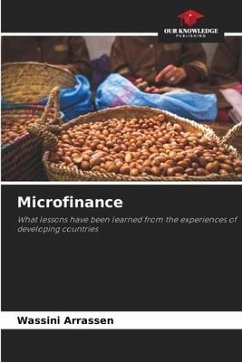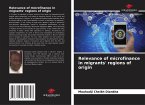After a synthesis of the main advances in microfinance, the thesis offers an overview of microfinance institutions (MFIs) in developing countries between 2000 and 2009. A study of the sub-Saharan African market is also proposed. It serves as a prelude to the econometric analysis of the determinants of the financial and social performance of MFIs in this region, as well as to the examination of the trade-offs between the two objectives. The model is also estimated with data from Latin America in order to test, among other things, its spatial robustness. The results show that despite strong growth, MFIs remain fragile due to payment delays and low profitability. Moreover, there is no universal microfinance model without regional specificities. The commercialization of the sector is questioned because even if it does not necessarily lead to a deviation from the social mission, it does not improve financial performance. Finally, the sector's wealth comes from its segmentation, while its weakness is due to its lack of organization, with competition resulting in an increase in risks.
Bitte wählen Sie Ihr Anliegen aus.
Rechnungen
Retourenschein anfordern
Bestellstatus
Storno








